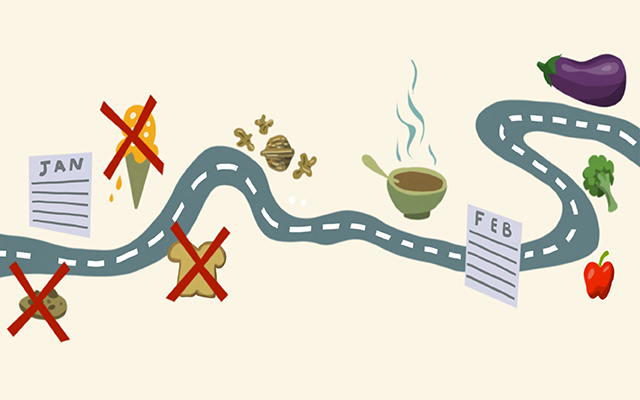Raise your hand if you’ve ever been on a diet. Most of us have, given that we live in an image-obsessed, diet-crazed society and that the quick fix weight loss business is a multibillion-dollar industry. Did dieting work for you? If so, were you able to achieve your goal and keep the weight off?
Dieting is a hard row to hoe. It’s not conducive to having a social life nor is it uncomplicated for those who prepare meals for others. When we diet, the journey is not as rewarding as the destination. It’s an experiment in deprivation that we subject ourselves to with determination and resolve to “do it this time.” But the percentage of people who achieve their goal via denial and sheer willpower and who maintain this newfound image is small.
A Broken System
Diets don’t work. If they did, diet gurus and authors touting “the way” wouldn’t tumble from their podiums and fade into obscurity. In listening to them hawk their programs and products, many think that a lifetime of thinness is a purchase away.
Assuming that diets work supports the false claim that each of us is identical, that each of us has the same ancestry, body type, activity level, metabolic type and personal preferences. These factors all shape our matchless bio-individuality and make it impossible for any diet to be all things to all people. According to Joshua Rosenthal, author of Integrative Nutrition, “Nature created us as unique human beings who, while sharing many similarities, are more remarkable for the ways we differ than for the ways we are alike.”
Dieting puts us at war with our natural selves, at war with our desires, our bodies and whatever foods we have labeled as being “bad.” This war is consuming, draining and distances us from the natural order of living. Marc David, visionary health and nutrition consultant and author of The Slow Down Diet and Nourishing Wisdom states, “Often, in our attempts to rid ourselves of negative food habits, we adopt strategies that make the conflict about having the habit more damaging that the habit itself.”
By assigning foods moral values, we set ourselves up for perpetual anxiety and struggle. In labeling ice cream bad, we invariably desire like mad, making it nearly impossible to resist. We then label ourselves bad for cheating, and the deprivation-guilt-punishment cycle perpetuates.
Hone Your Intuition
In this busy world we live in, it’s easy to eat on the run and mindlessly consume food to keep the hunger pangs at bay. Intuitive eating involves paying attention to what your body is communicating and eating only when hungry, eating slowly and attentively and stopping when full.
According to Dr. Andrew Weil, Founder and Director of the Program in Integrative Medicine at the College of Medicine, University of Arizona, “Intuitive eating is akin to the concept of mindful eating, which involves teaching the basic tenets of mindfulness meditation. Eating mindfully simply means slowing down, expressing gratitude for the food you are eating, and paying attention to feelings of fullness. Focusing on why you eat instead of what you eat may turn out to be the best route to healthy and permanent weight control.”
Forget About Quick Fixes
According to Pilar Gerasimo, “In less than two decades, more than 85% of our population will be overweight or obese. No magic diet, powder, pill, or elixir is going to solve the problems we’re wrestling with now. And forking over cash for quick fixes only lines the pockets of the quick-fix hucksters who helped get us into this mess. So instead of squandering your valuable time and money on miracle cures, invest in making healthy life changes for the long haul.”
I couldn’t agree more!




This Post Has 0 Comments